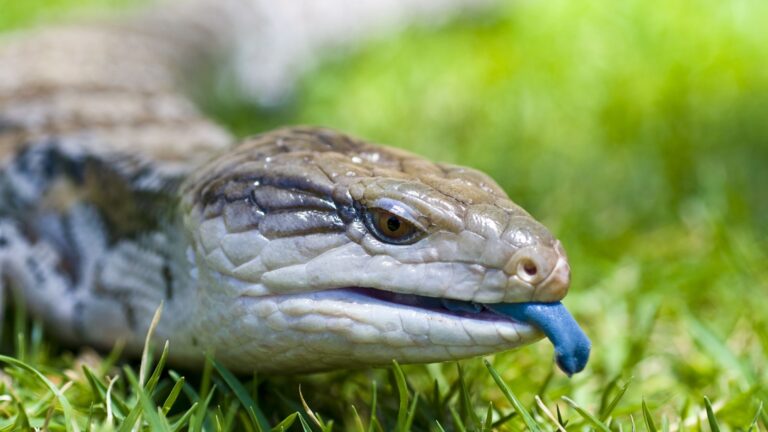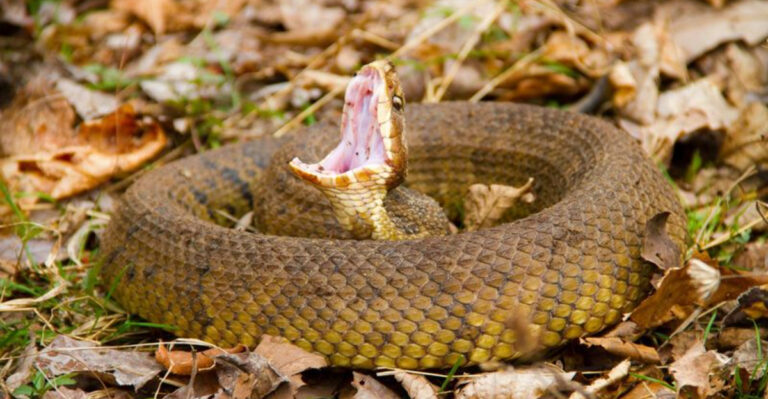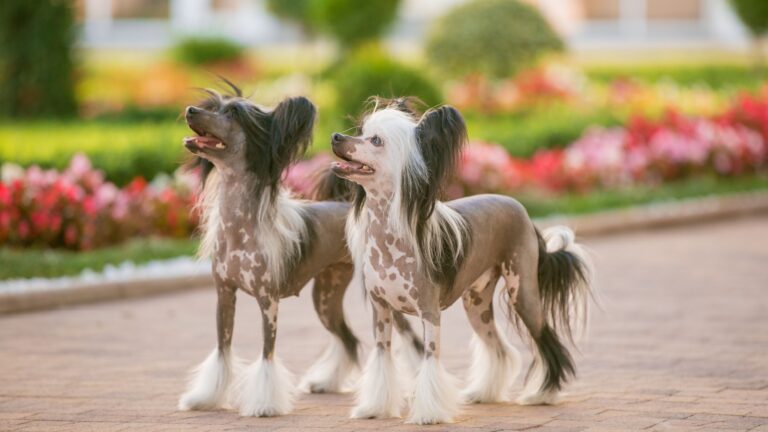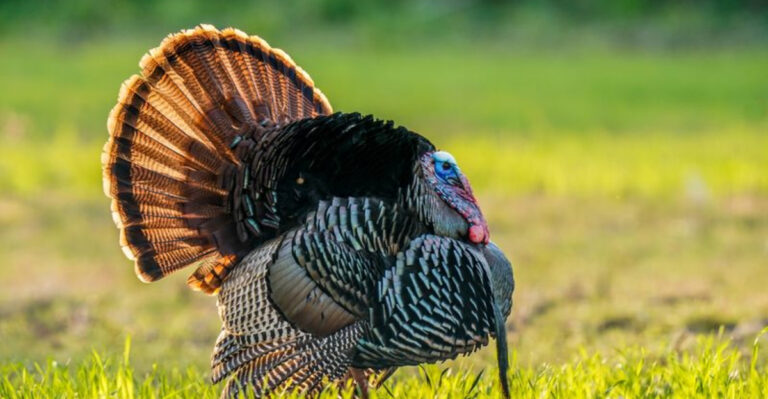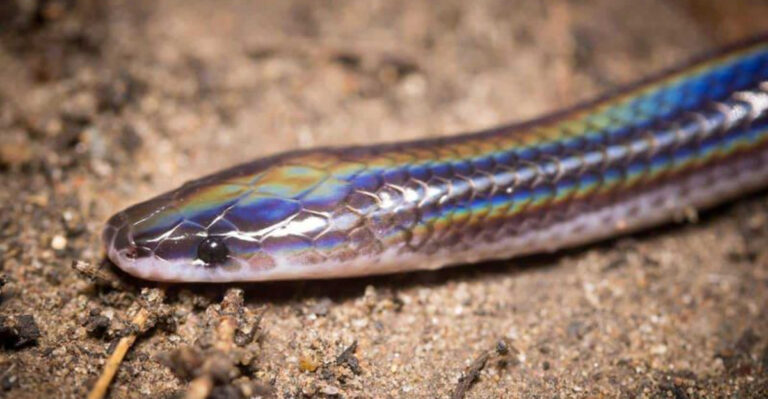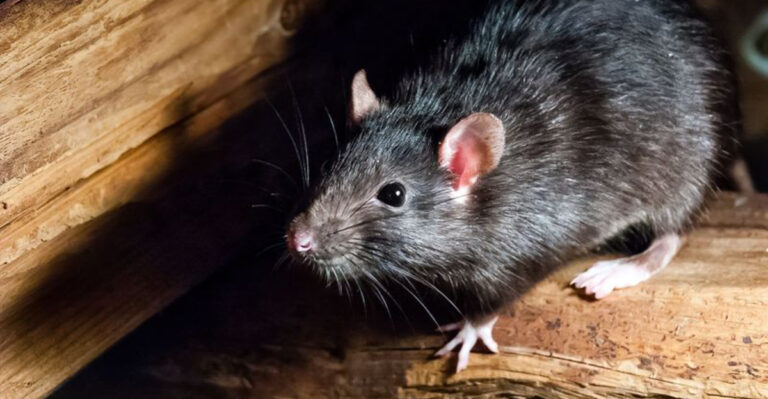10 Cat Breeds Vets Wish People Would Stop Buying (And 5 They Recommend)
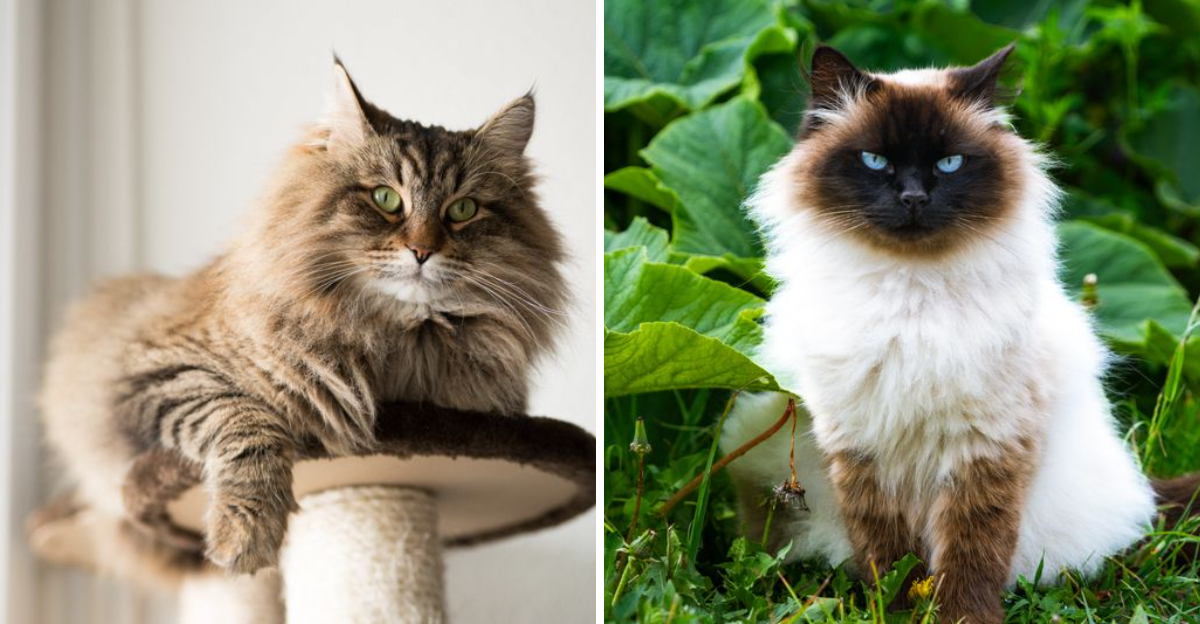
In the world of feline companions, some breeds are beloved by owners but might cause a vet to raise an eyebrow.
Whether it’s due to health issues or behavioral quirks, certain cat breeds come with their own unique sets of challenges. Meanwhile, others are celebrated for their low-maintenance lifestyles and adaptability.
1. Persian
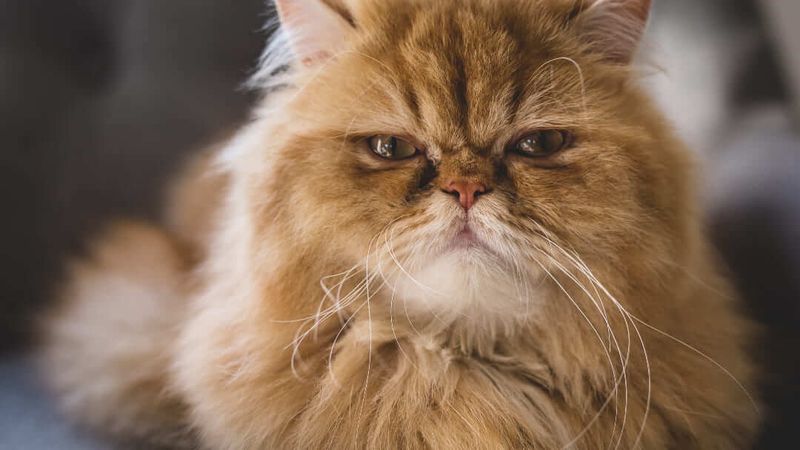
With their opulent coats, Persians might look like royalty, but owning one can be a royal headache. They require regular grooming to prevent matting, and their flat faces lead to respiratory issues.
Persians are also prone to polycystic kidney disease, which can be a serious concern.
It’s tough seeing your feline friend struggle with health problems, making their charming appearance sometimes overshadowed by the care they demand.
2. Scottish Fold
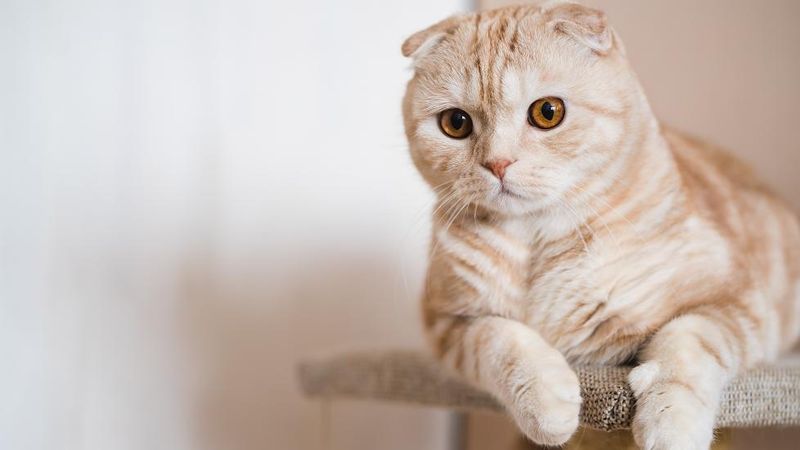
Those adorable folded ears? They’re due to a genetic mutation that can lead to cartilage issues, causing pain and discomfort. Scottish Folds are known for their sweet nature, but their health problems often steal the spotlight.
Arthritic conditions can be common, leaving them less sprightly than their peers. It’s a heartbreaking irony that such a cute feature can lead to lifelong challenges for these affectionate cats.
3. Sphynx
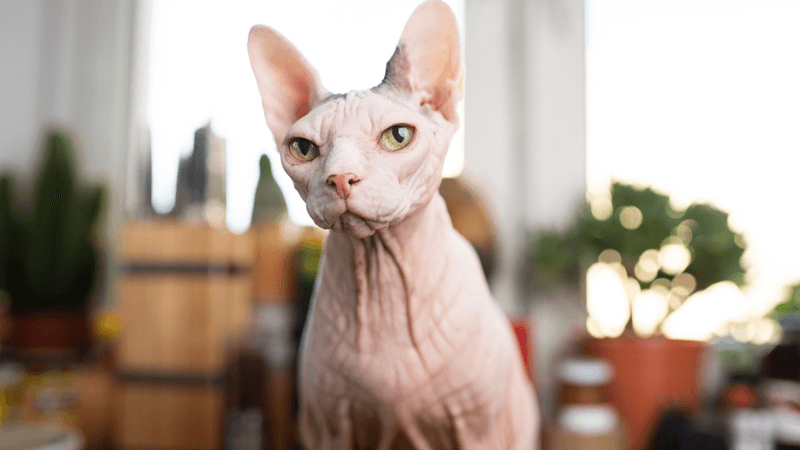
Ever seen a cat that needs sunscreen? Meet the Sphynx. Their lack of fur means they require frequent baths to remove oils and potential skin irritations. While these cats are social butterflies, their grooming needs might overwhelm unsuspecting owners.
Additionally, they’re prone to heart diseases which adds another layer of concern. Despite their naked charm, they’re high-maintenance in ways you might not expect.
4. Maine Coon
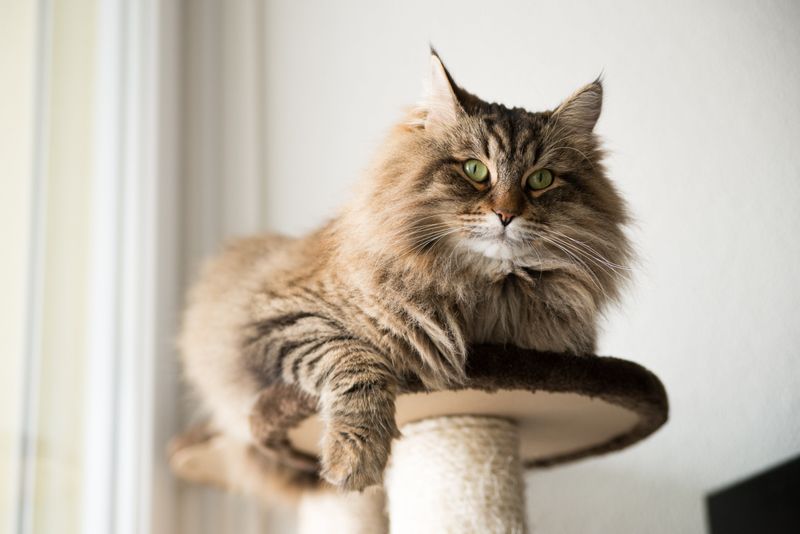
Majestic and large, Maine Coons are known for their robust appearance, but did you know they’re prone to hypertrophic cardiomyopathy? This heart condition can shorten their lives dramatically.
Their long fur encourages daily grooming, not to mention the potential hip dysplasia due to their size. While their gentle giants’ persona is enchanting, the health watch list is as extensive as their fluffy tails.
5. Bengal
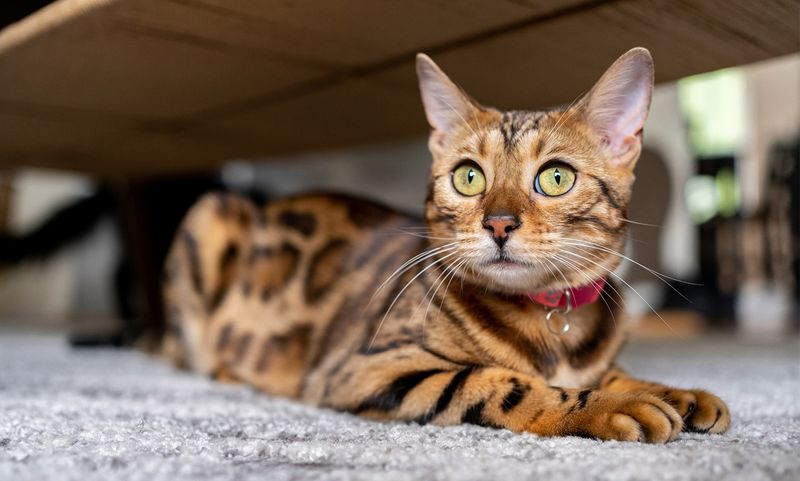
The wild-looking Bengal might remind you of a jungle cat, but their high energy levels can lead to destructive behavior if not properly channeled. They thrive on engagement and can be overly vocal, demanding constant attention.
This active lifestyle might be overwhelming for those looking for a laid-back companion. Their vibrant patterns come with a need for space and stimulation, often more than what a typical household offers.
6. Abyssinian
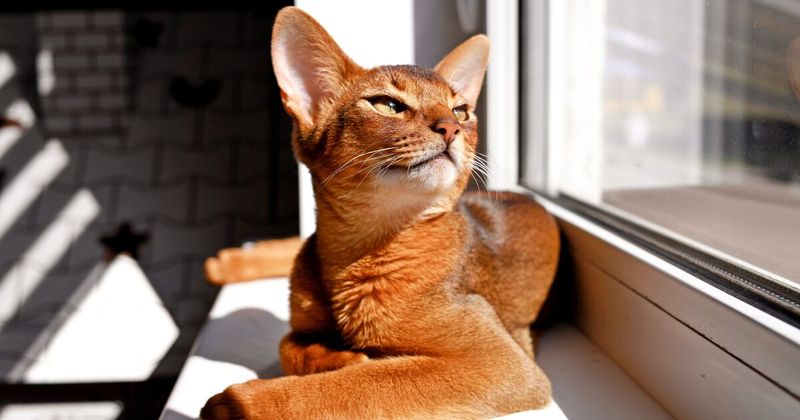
Sleek and agile, Abyssinians are every bit the playful explorers. However, their high activity level can be daunting. They need stimulation and interaction, making them ideal for active families.
Prone to dental issues, regular vet check-ups become essential. Their curious nature can lead to trouble, yet their zest for life is infectious. If you’re always on the go, they might just keep up—or wear you out.
7. Ragdoll
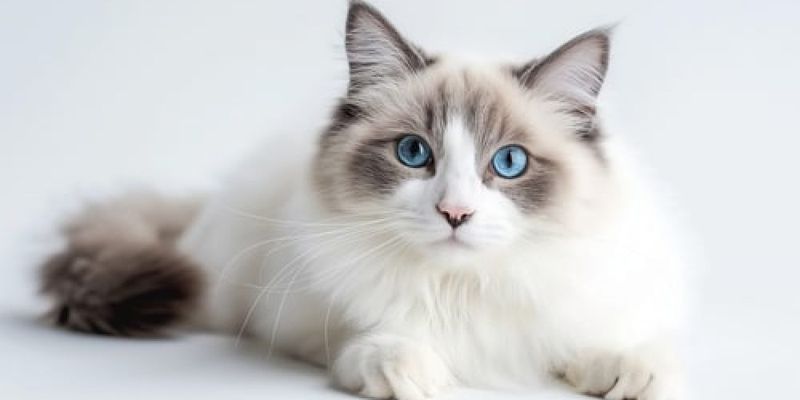
Ragdolls are known for their placid temperament, but lurking beneath is a predisposition to heart conditions like hypertrophic cardiomyopathy. Their docile nature means they might silently suffer without complaint.
Regular vet visits are necessary to catch potential issues early. While their laid-back attitude is appealing, it comes with a side of health vigilance, making them a choice for informed owners only.
8. Exotic Shorthair
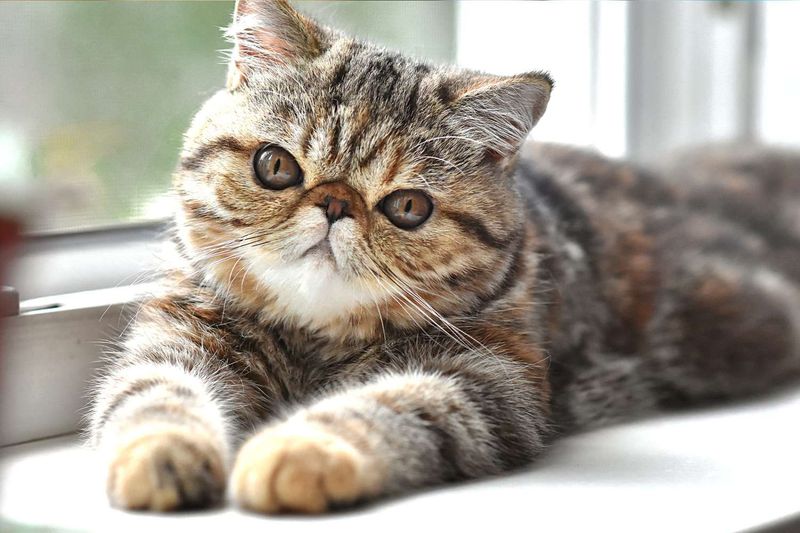
Imagine a Persian with less fuss. That’s the Exotic Shorthair. Yet, their flat faces still pose respiratory challenges, similar to their fluffy counterparts. Eye and nose discharge is common, requiring regular cleaning.
They’re easier in terms of grooming but still demand attention to health specifics. The charm of their plush looks is tempered by their ongoing care needs, making them a breed for those ready for extra duties.
9. Himalayan
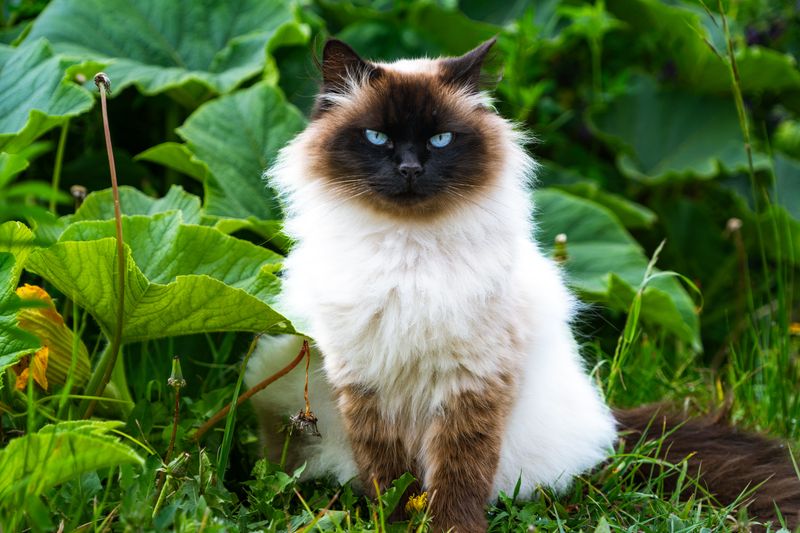
As the cousin to the Persian, Himalayans share similar struggles. Their fluffy coats need regular grooming, and respiratory issues aren’t uncommon.
Prone to polycystic kidney disease, they require diligent health monitoring. Their beauty often blindsides potential owners to the care they demand.
If you’re ready for a grooming routine and health vigilance, their calm demeanor might be worth the effort, but it’s not for the faint-hearted.
10. Devon Rex
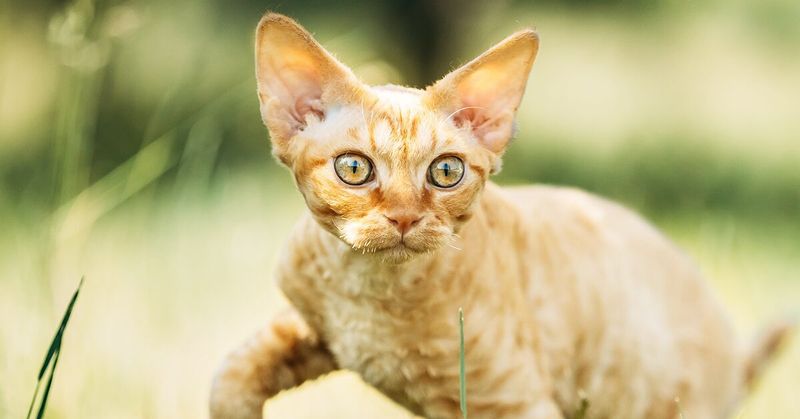
The pixie-like Devon Rex is as playful as it looks, with a personality to match. However, their curly coats can lead to skin issues, and their large ears need regular cleaning.
While they’re affectionate and social, they demand attention to detail in care. Their charm is undeniable, yet potential health problems mean they’re suited for owners who appreciate their unique needs and are ready to meet them.
11. Domestic Shorthair
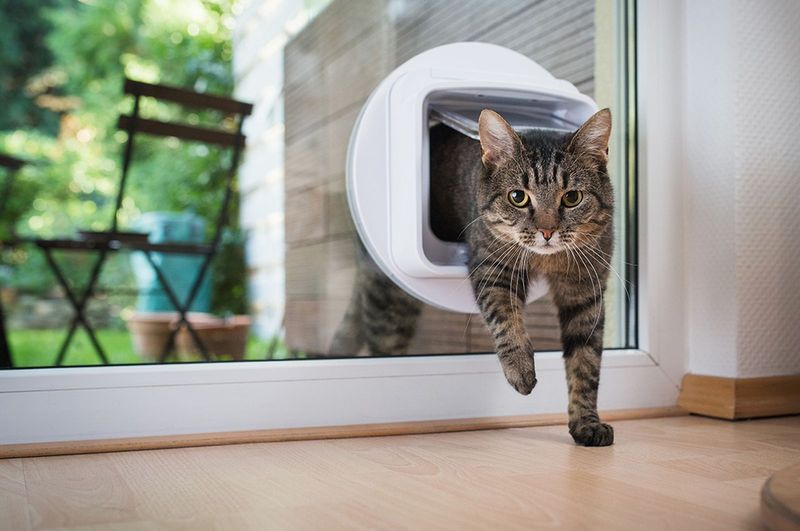
When it comes to an easy-going companion, Domestic Shorthairs are the gold standard. Adaptable and healthy, these cats come in a rainbow of colors and patterns.
Their mixed genetics often lead to fewer hereditary problems, making them vet favorites. They’re the quintessential low-maintenance feline, perfect for first-time owners or busy households. With a DSH, you get versatility, resilience, and endless affection.
12. Burmese
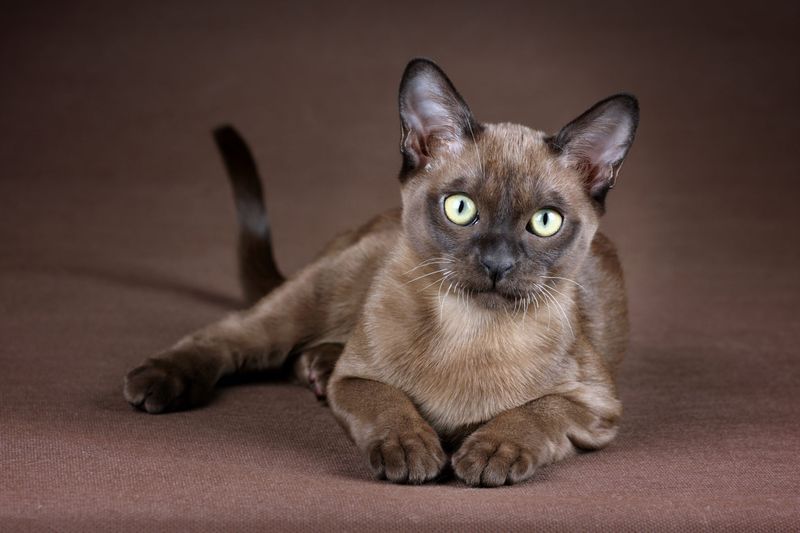
Elegant yet robust, Burmese cats are a family favorite. Their social nature makes them great companions, and they’re often less problematic health-wise.
Low-maintenance grooming and a friendly demeanor are their trademarks. Vets appreciate their overall hardiness, making them a top choice for families.
If you’re seeking a sociable and loving pet, the Burmese might be the perfect fit, bringing warmth and joy to any home.
13. Siberian
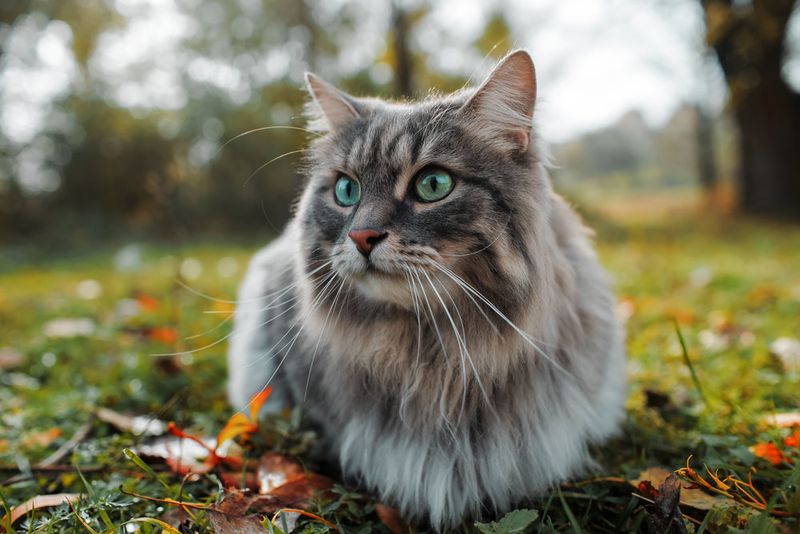
Siberians are the epitome of natural beauty and health. Their low allergenic properties are a big plus, especially for sensitive owners. Despite their dense coats, they’re relatively low-maintenance.
Hardy and resilient, they often avoid the genetic pitfalls of other breeds. If you’re in search of a robust and engaging feline friend, the Siberian offers a delightful mix of strength, grace, and companionship.
14. Russian Blue
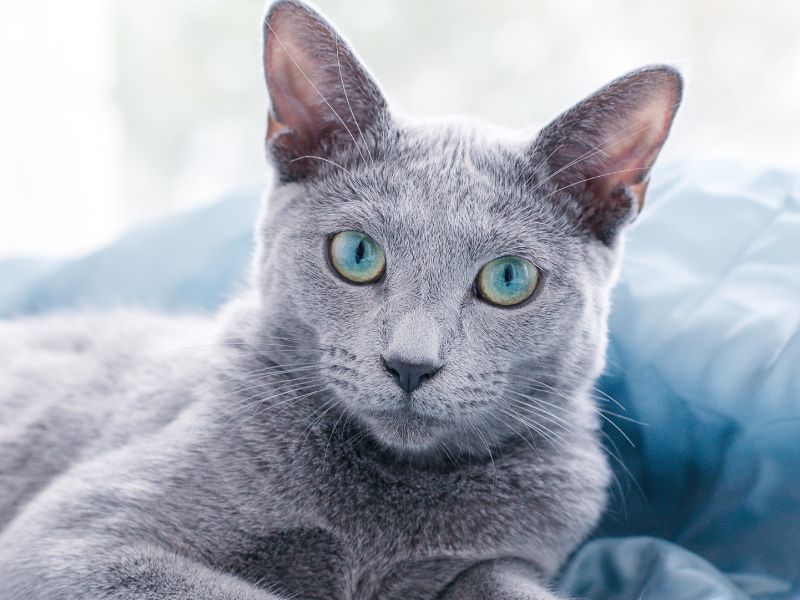
Known for their tranquil demeanor, Russian Blues are a dream for those seeking peace. Their dense, plush coats require little grooming, and they boast few genetic health issues.
Vets love their overall tranquility and health resilience. If serenity is your goal, a Russian Blue might just fit the bill, offering calm companionship without demanding too much in return—an ideal match for smaller apartments too.
15. Manx
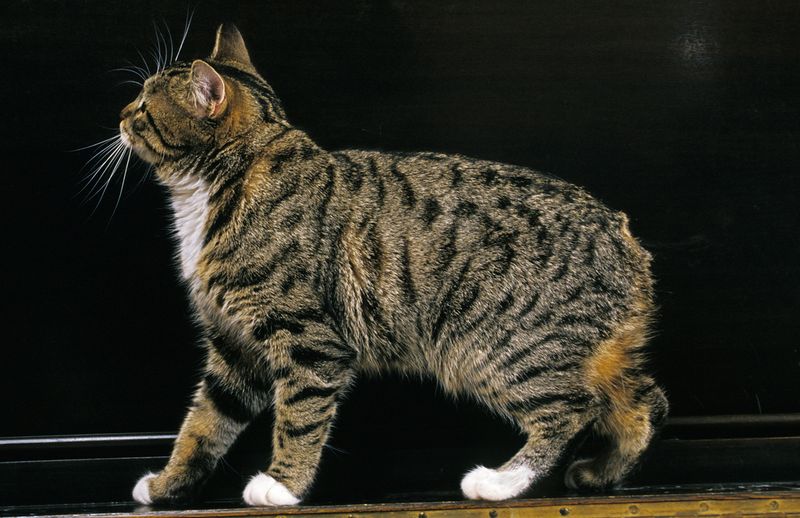
With a playful spirit and a robust build, the Manx is an all-around favorite. Known for their taillessness, they sometimes face spinal issues, but vets still recommend them for their easy-going nature.
They’re excellent for both families and first-time owners, blending affection with a bit of mischief. Their unique look is matched by their delightful personality, making the Manx a loving addition to any household.

